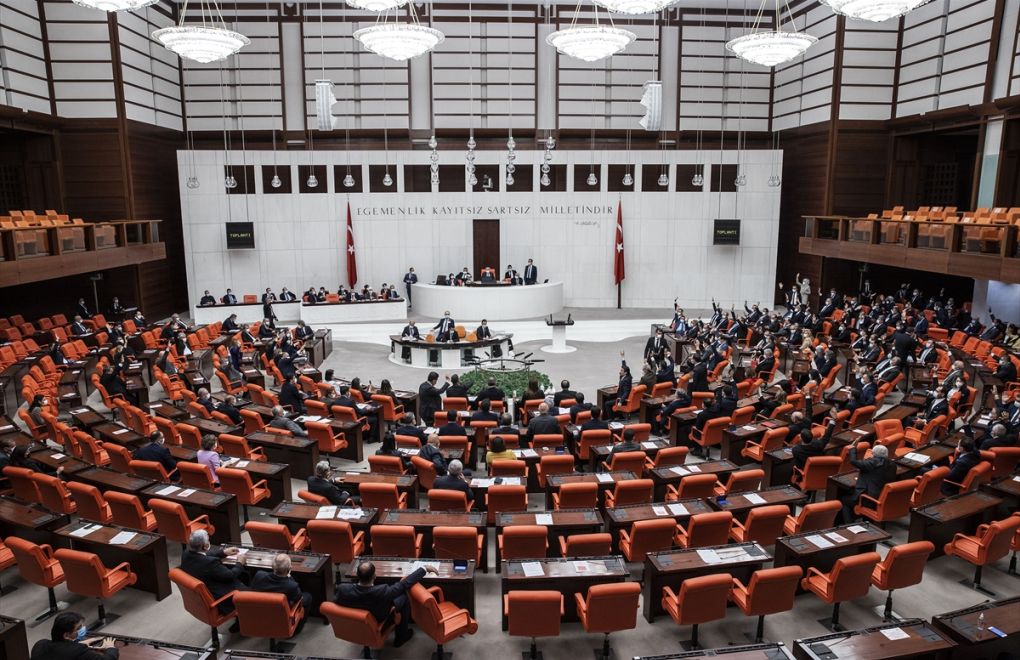* Photo: AA - Archive
Click to read the article in Turkish / Kurdish
According to a recent amendment introduced to the law on criminal execution in Turkey, the communication of convicts in both written form and on the phone will be recorded and stored.
The Motion Foreseeing Amendment to the Law on Execution of Sentences and Security Measures and Some Laws has been approved and passed into law by the General Assembly of the Parliament.
With this amendment, in the event that the related institutions have the necessary technical infrastructure, convicts will be able to send and receive letters by electronic means within the frame of the terms and conditions to be specified by the Ministry of Justice.
There was also an article in the motion foreseeing the deferment of the execution of the sentence of a woman who has a child younger than 15. The related article would enable the deferment until the child turns 15. However, the article has been omitted from the motion.
Articles on convicts of organized crimes
The law amendment has introduced some new arrangements in terms of the tapping and surveillance of the convicts of organized crimes.
According to the amendment, in the event that a convict sends a letter, fax or telegram to official authorities or to their attorneys for their defense, it will be ensured that all measures will be taken so that the access to the related message by third parties will be prevented.
Depending on the request of the convict, the message will be delivered to its addressee by mail or by electronic means.
The amendment says that the letters, faxes or telegrams sent or received by convicts of organized crimes can be digitally or physically stored.
The related amendment will reportedly apply to "the convicts of terror crimes, the crimes of establishing, leading or being a member of an organization and the crimes committed as part of organizational activities" or "the convicts who are in a dangerous situation or whose communication with outside is considered to pose a danger to the institution's security."
As the reason for this practice, the amendment has said that it is "with the aim of protecting public order, maintaining the security of the person, society and institution or preventing commital of crimes."
It has been noted that "the records or documents as to the related messages shall not be misused, not be shared with any persons or institutions, except for the conditions openly specified by the law." The related correspondence "will be deleted or destroyed at the end of 1 year the most in the event that it is not subjected to any investigation or prosecution."
According to the amendment, the related actions of deletion and destruction will be inspected by public prosecutors.
Phone calls to be tapped, recorded
On the condition that they are informed beforehand, the phone calls to be made by the following people can be wiretapped and recorded, including with electronic devices, by prison administrations:
"The convicts who are in a closed penal institution and charged with terror crimes, the crimes of establishing, leading or being a member of an organization and the crimes committed as part of organizational activities" or "the convicts who are in a dangerous situation or whose communication with outside is considered to pose a danger to the institution's security."
As the reason for this practice, the amendment has said that it is "with the aim of protecting public order, maintaining the security of the person, society and institution or preventing commital of crimes."
It has been noted that "the records shall not be misused, shall not be shared with any persons or institutions, except for the conditions openly specified by the law." They "will be deleted or destroyed at the end of 1 year the most if they are not subject to an investigation or prosecution."
According to the amendment, the related actions of deletion will be inspected by public prosecutors.
'Treatment' inspection by monitoring boards
According to the amended law, monitoring boards will be able to make an on-site examination and inspection in the vehicles where arrestees and convicts are transfered, kept waiting at courthouses or treated in medical institutions; they will be able to receive information from executives and officials and they will also be able to hear arrestees and convicts.
Within the frame of the principles indicated in the legislation and the international conventions that Turkey is a party to, the monitoring boards of penal institutions and detention centers will send a copy of the reports on the related institutions' management, functioning and practices to the Ombudsman Institution and Human Rights and Equality Institution of Turkey.
According to the amended law on criminal execution, Chief Public Prosecutors will be assigned and authorized to eliminate the differences that might arise between the public prosecutors' decisions that finalize an investigation and to inspect these decisions' compliance with the law.
Supervised release for non-citizens
In the event that a foreign convict is given a decision of execution on supervised release, the situation of the related person as to the deportation procedures will be evaluated by the Ministry of Interior.
If a convict requests his or her transfer to another penal institution and documents his or her financial incapability, he or she will not be charged a transportation fee. With this amendment, the convicts' duration of visitation has been increased from 1 hour to 1.5 hours.
The obligatory 1-month minimum time between casual leaves for patient visits of prisoners and convicts has been lifted. (AS/SD)




